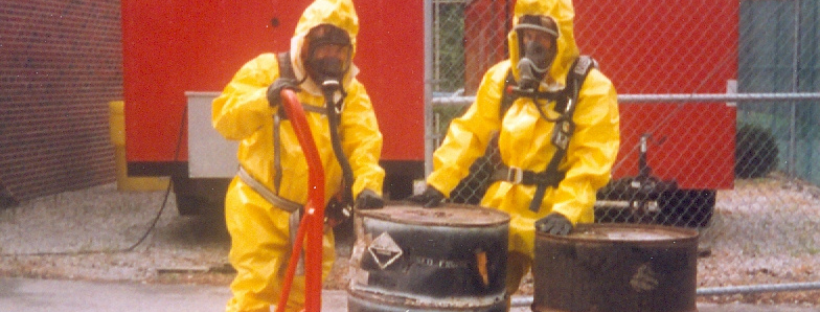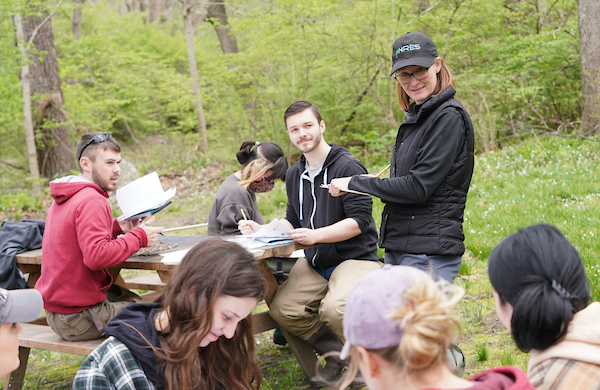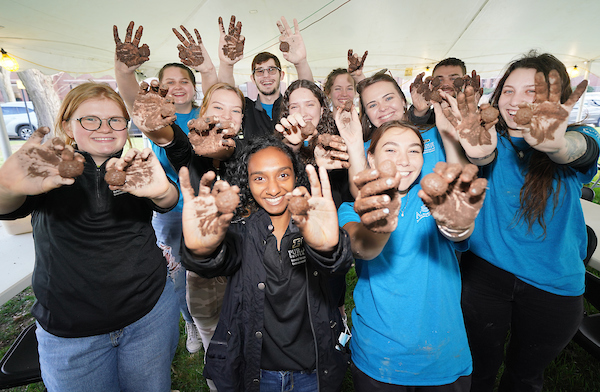A fifty year journey of working to make the world a better place
The year was 1970. The political climate of the day was giving rise to greater awareness of environmental issues and their impact on society. By the end of that year, the Nixon administration had established the Environmental Protection Agency and passed the Clean Air Act. As the world began to take notice of these important and pressing issues, students and faculty in Purdue Agriculture followed suit.
On October 27, 1970, the then School of Agriculture faculty voted to establish the Natural Resources and Environmental Sciences (NRES) program, which became the first interdisciplinary program of its kind in the United States and led the way for similar programs at other land grant institutions. The founding mission of the NRES program was simply “to make the world a better place.” So began what would become a 50-year history of educating the next generation of environmental scientists.
Under the guidance of Ron Giese, who served as the first director of the NRES program as well as a professor in entomology, the program’s initial objectives were to develop education and research to “provide safe, healthful, economically sound and ecologically compatible methods of manipulating our resources.” The course of study included environmental research and Extension along with plans for a graduate curriculum.
 Hazmat training has been a memorable experience for many NRES students through the years.
Hazmat training has been a memorable experience for many NRES students through the years. The inaugural graduating class of the NRES program started small with just 10 students in 1971. However, it grew quickly to 21 students by 1973 and, ultimately, reached 38 students by 1974. Eileen Kladivko, professor of soil science in the Department of Agronomy at Purdue, was a proud graduate of the class of 1975 and recalls why the program was so desirable to her at the time.
“I chose the NRES program in the early 1970s because the modern environmental movement was just getting started, and I wanted to save the world environmentally,” Kladivko said. “At the time, Purdue was one of the few places that had an interdisciplinary environmental science program. The program was very flexible, and it could be tailored to your interests. The NRES program was helpful to my career because it gave me the environmental background required to allow me to work on all kinds of different topics in solving pollution problems. As I found my interest in soils, it allowed me to combine my interest in the environment along with soils and agriculture. My whole career has been oriented towards the intersection of the environment and agriculture thanks to the NRES program.”
Through the years, the NRES program has changed focus and priorities as the world has changed; however, the personalized approach to students has remained the same.
 On July 1, 2017, Laura Bowling, professor of agronomy, and Linda Prokopy, former professor of forestry and natural resources and current head of the Department of Horticulture and Landscape Architecture, were appointed co-directors of the NRES program. With a solid history of educating the next generation of environmental scientists as well as a shift in the key challenges in the environmental realm, they realized changes were necessary to bring the program increased exposure and continued growth. These changes included a shift in curriculum as well as the program’s areas of concentration.
On July 1, 2017, Laura Bowling, professor of agronomy, and Linda Prokopy, former professor of forestry and natural resources and current head of the Department of Horticulture and Landscape Architecture, were appointed co-directors of the NRES program. With a solid history of educating the next generation of environmental scientists as well as a shift in the key challenges in the environmental realm, they realized changes were necessary to bring the program increased exposure and continued growth. These changes included a shift in curriculum as well as the program’s areas of concentration.
At this time, the NRES program also moved to the Forest Products Building to provide a dedicated space for academic advising and student comradery. Through partnerships within the college these changes strengthened the NRES program to meet the changing needs of students.
“Today NRES has one major with a flexible plan of study that blends fundamental science with social awareness and policy,” Bowling shared. “Over the years, key challenges in the environmental realm have shifted, courses offered within different departments have changed, and students’ interests have evolved. Climate change was not really an issue that was attracting student interest in 1970, but it certainly is today. We want to be creating a program that is going to prepare our students for meaningful careers in environmental sciences and natural resources.”
The NRES program continues to grow. The current enrollment for the 2022-2023 academic year is 160 students. Bowling notes the program remains strong, and interest remains high in careers based on environmental sciences. The work being done by NRES graduates is vast and impactful. Many graduates go on to serve in roles such as: Environmental Consulting, state government, federal government, not-for-profit organizations, for-profit corporations along with graduate and law schools.
Fifty years after its inception, the draw remains the same today as it was in the early 1970s. Current senior, Eva Curtis, says she enrolled in the NRES program at Purdue University so she could, “better the earth.”
 NRES students create "seed bombs" to be distributed in the community.
NRES students create "seed bombs" to be distributed in the community. “The hands-on learning, undergraduate research opportunities, and valuable interpersonal connections are only a few of the countless benefits the NRES program has provided,” Curtis said. “The passion for bettering the environment that is shared by students and faculty alike has made an enormous impact on me and makes it an incredible community to be a part of.”
Bowling, now director of NRES, reflects on how amidst change the program continues to have the same primary focus.
“NRES continues to offer a flexible, hands-on curriculum in a supportive, fun environment, preparing the next generation to make the Earth a better place, in their own, individual way.”
- Laura Bowling, director of NRES






